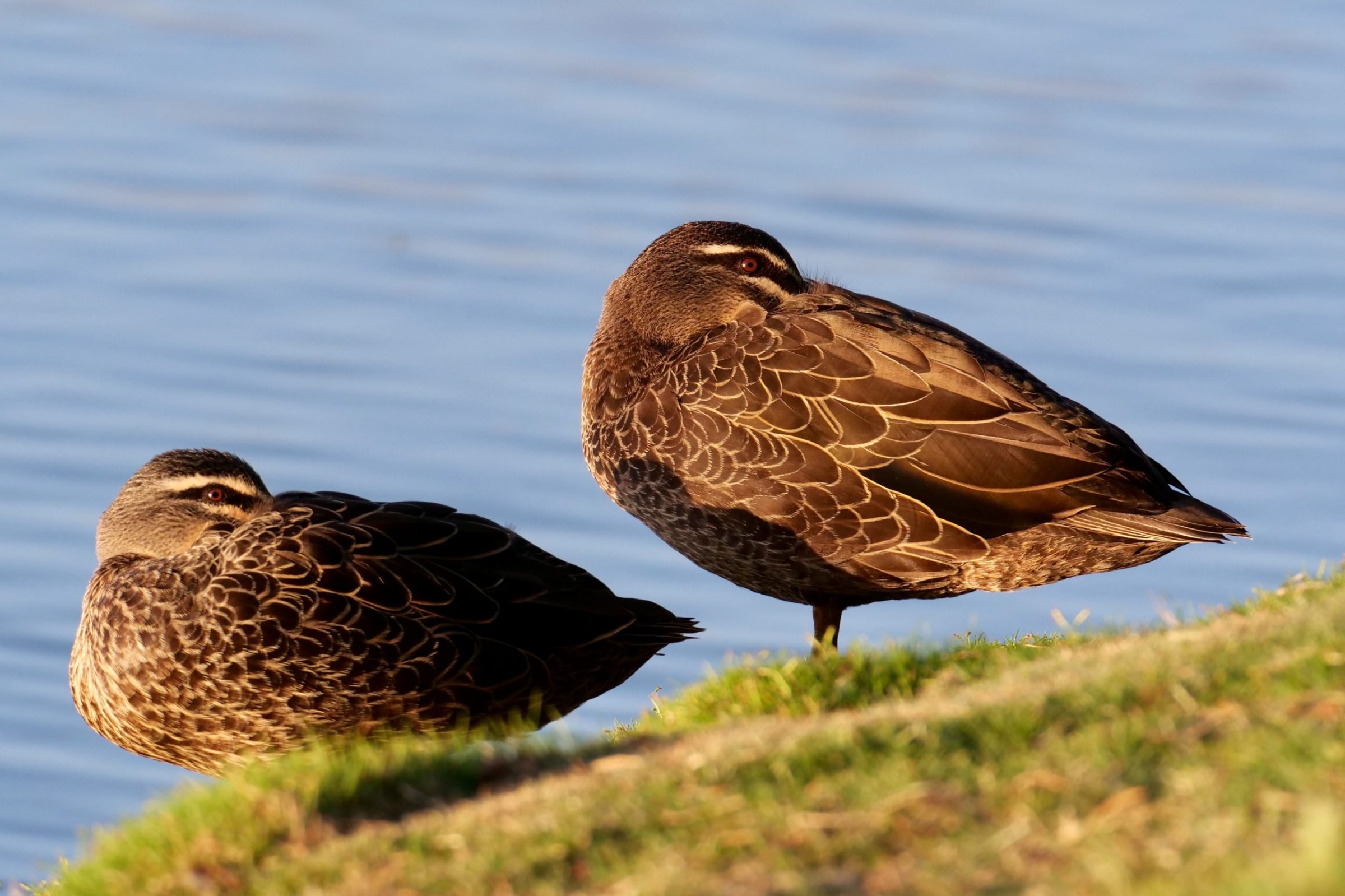Ever wondered how speakers/singers of Spanish or Portuguese would render a duck’s “quack”?
In both of the Iberian Peninsula’s most-spoken languages “duck” becomes “pato”.
Portuguese – the “lesser” of the two – is the predominant tongue in Brazil, which has a far larger population than Spain and Portugal, combined.
Here, in Australia, Anas superciliosa – the Pacific black duck – is the most abundant species.
It is predominantly not black, often gets around in pairs, and can interbreed with the Northern mallard – our domestic ducks’ ancestor.
I suspect that the snug, relaxed, pictured couple may be expressing a little hybrid vigour!
(photo copyright Doug Spencer, taken on south shore of Perth’s Lake Monger at 5.14 pm on 28 April 2020)
One of the classic “bossa nova” songs atypically lacks saudade – the genre’s trademark “bittersweet” quality.
O Pato is a “nonsense” song, but one with much better musical “bones” than most “nonsense” songs.
Arguably, the greatest bossa nova singer-guitarist was João Gilberto (1931-2019), whilst Brazil’s greatest living songster is probably Caetano Veloso (born 1942)
Caetano has long regarded João as Brazil’s greatest musical artist, and in João‘s later years Caetano did everything he could to persuade the increasingly-reclusive João to continue to perform and record…and to introduce younger Brazilians to João‘s artistry.
This performance, I think, comes from a 1999 duo concert in Buenos Aires.
As another admirer has observed, Frank Sinatra and Elvis Presley performed “Old MacDonald Had a Farm,” but not with the same good humour:
“Fine feathers” have a key role in a much more “serious” song, from a much colder part of the world.
Kate McGarrigle’s Jacques et Gilles was inspired by the plight of Jack Kerouac’s parents, and that of many other impoverished French Canadian “migrant workers” who toiled on the “other side of the border”, in New England’s oft very dark-satanic mills.
It is an exquisitely crafted song, from which one could develop an entire historical novel or screenplay.
The full lyric is here
This is the original version from Kate and Anna McGarrigle’s 1996 release, Matapedia, as remastered in 2012:
If you are new to Kate and Anna McGarrigle, this obituary for Kate is a good place to start.
